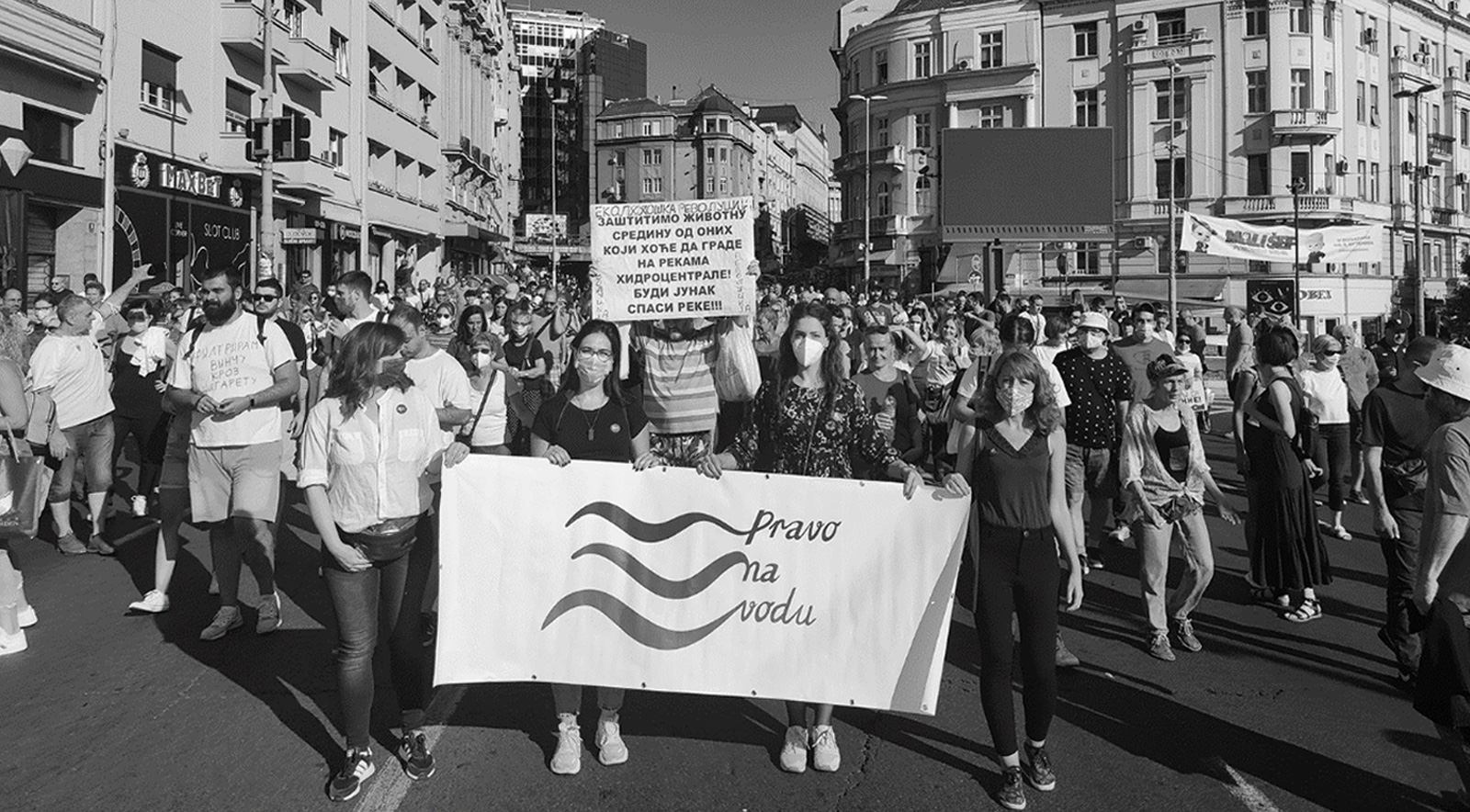
“One million people in Serbia cannot access or can only occasionally access clean drinking water. That’s out of a total population of 7 million,” says Žaklina Živković, co-executive director of the Organisation for Political Ecology – Polekol.
It was in 2018 that activists from Belgrade, including Žaklina and Iva Marković, came together to found the “Pravo na Vodu” or “Right to Water”, which a couple of years later, became part of “Polekol”. Today, Polekol is the driving force of a surge in environmental activism.
“In 2018, we supported our first initiative: ‘Defend the mountains of Stara Planina’”. Together with villagers and other activists, we organised protests to protect their (and our) rivers. Since then, we have supported 70 such communities, helping local citizens protect their rivers, forests and local environments,” says Zaklina.
She explains that the staff of Polekol have a wealth of experience in environmental policy, legislation and civil society mobilisation. They see their role as supporting local communities, and helping to ensure that they are including in decision making processes on environmental issues.
“We help locals understand the bigger picture: climate change, environmental legislation, systematic failure of the legal system. We support them to fight institutionally and to prepare lawsuits. We connect them with environmental academics and scientists who can help them. However, we do not speak in their behalf or take their voice. It is their authentic voices that lead the campaigns,” she says.
The Polekol team ask for nothing in return, except that local people support others facing similar challenges. Their work is grassroot based and based on word-of-mouth.
“We are building solidarity within the environmental movement. We help local communities network with others in Serbia and in the overall Western Balkans region, for this is not just a national fight. We can see how our governments are copying each other’s policies, so it is important that we build regional initiatives. Local environments are in danger everywhere,” she says.
In 2020, Polekol was the founding member of a new regional network: “Defend the Rivers of the Balkans”. They also initiated the first network of women working in nature protection in Serbia.
Žaklina explains that environmental activism provides an important way of combatting rising nationalism and populism in the region.
“We are a divided society and an important part of our work with local communities is building bridges between them. People have lost hope in the rule of law and in fighting corruption. They have poor employment prospects. But they are united by their desire for a clean safe environment,” she says.
She notes that the group work in all communities, including in far-right villages. “We are often the first people who have engaged with them, apart from the government. When we work together on environmental actions, we can build trust, and then we can open the door to more difficult conversations,” she says.
Today, Polekol runs four different programmes: Pravo na Vodu, that is supported by EED; a Women’s network for the environment; a programme focused on increasing citizen participation in decision making processes; and an education programme on green politics and policies.
Žaklina can see that over the past six years, Polekol activists have made a difference in Serbia.
“We have influenced a change in legislation on the protection of nature and on the use of renewables. For instance, small hydroelectric power plants are now banned in protected nature areas of Serbia. Our biggest win is convincing people to fight for their natural environments. Ten years ago, only a handful of people turned up at protests. Today, the protests can attract over 10,000 people. We have built solidary in the movement,” she says.
She admits that there are still considerable areas of concern. For instance, only 8 percent of territory in Serbia is protected, although the government committed to protecting 20 percent by 2020. Existing legislation on protection of the environment has not been implemented and there is increasing pressure on natural resources. A key area of concern is the opening of new lithium and other critical raw material mines in Serbia, with 30 mines planned over the next 25 years.
“We are very worried about this new wave of industrialisation in Serbia. Up to now, we have been dealing with local polluters but now we are facing multi-national companies with big budgets. Environmental legislation is even more under threat now,” she says.
Polekol played an active role in the recent elections, campaigning under the slogan “Dokle više” (“How much is enough?”) and encouraging people to vote.
“It is more important than ever that we continue to adapt, that we work with more and more communities and we continue to give them voice,” she says.
This article reflects the views of the grantees featured and does not necessarily represent the official opinion of the EED.